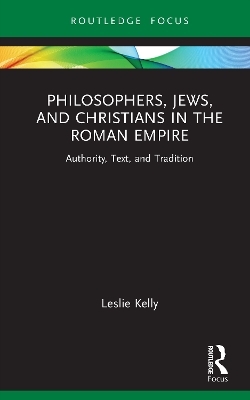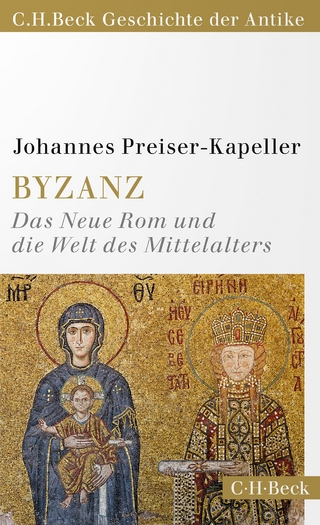
Philosophers, Jews, and Christians in the Roman Empire
Authority, Text, and Tradition
Seiten
2025
Routledge (Verlag)
978-1-032-90421-4 (ISBN)
Routledge (Verlag)
978-1-032-90421-4 (ISBN)
- Noch nicht erschienen (ca. Februar 2025)
- Versandkostenfrei innerhalb Deutschlands
- Auch auf Rechnung
- Verfügbarkeit in der Filiale vor Ort prüfen
- Artikel merken
This book explores how philosophical and religious communities in the Roman Empire of the first and second centuries CE engaged with and were shaped by their relationship to texts and tradition in their quest for true religious knowledge, or ultimate truth.
This era was a dynamic transition period for philosophers, Jews, and Christians in the Roman Empire: it was the stage between Hellenistic philosophy and the Neoplatonism of Late Antiquity; the end of Second Temple Judaism and the start of the rabbinic period; Christianity’s rapid growth and transformation into an institutional and uniform church. Philosophers, Jews, and Christians utilized similar strategies for communal identity and boundary-marking and reinterpreted ancient traditions in creative ways to create new centers of authority. An intellectual literary culture fostered a focus on texts as a locus of contention, conversion, and exchange within and between groups. The book surveys and compares these groups as three distinct textual or reading communities, analyzing their practices of textual engagement and parallel attitudes towards textual authority in this period.
This book is suitable for students and scholars working on ancient philosophy in the Roman Empire, classicists, and scholars of early Christianity and Judaism in this period.
This era was a dynamic transition period for philosophers, Jews, and Christians in the Roman Empire: it was the stage between Hellenistic philosophy and the Neoplatonism of Late Antiquity; the end of Second Temple Judaism and the start of the rabbinic period; Christianity’s rapid growth and transformation into an institutional and uniform church. Philosophers, Jews, and Christians utilized similar strategies for communal identity and boundary-marking and reinterpreted ancient traditions in creative ways to create new centers of authority. An intellectual literary culture fostered a focus on texts as a locus of contention, conversion, and exchange within and between groups. The book surveys and compares these groups as three distinct textual or reading communities, analyzing their practices of textual engagement and parallel attitudes towards textual authority in this period.
This book is suitable for students and scholars working on ancient philosophy in the Roman Empire, classicists, and scholars of early Christianity and Judaism in this period.
Leslie Kelly is Professor of History in the School of Arts, Humanities & Education at American Public University, USA. She is the author of Sources in Late Antiquity and Byzantium; Prophets, Prophecy, and Oracles in the Roman Empire: Jewish, Christian, and Greco-Roman Cultures; and Dialogue in the Greco-Roman World.
1. Introduction; 2. Philosophers; 3. Jews; 4. Christians; 5. Conclusion.
| Erscheint lt. Verlag | 28.2.2025 |
|---|---|
| Reihe/Serie | Routledge Focus on Classical Studies |
| Verlagsort | London |
| Sprache | englisch |
| Maße | 138 x 216 mm |
| Themenwelt | Geschichte ► Allgemeine Geschichte ► Altertum / Antike |
| Geisteswissenschaften ► Philosophie ► Philosophie Altertum / Antike | |
| Geisteswissenschaften ► Religion / Theologie ► Weitere Religionen | |
| ISBN-10 | 1-032-90421-6 / 1032904216 |
| ISBN-13 | 978-1-032-90421-4 / 9781032904214 |
| Zustand | Neuware |
| Haben Sie eine Frage zum Produkt? |
Mehr entdecken
aus dem Bereich
aus dem Bereich
die Inszenierung der Politik in der römischen Republik
Buch | Hardcover (2023)
C.H.Beck (Verlag)
48,00 €


